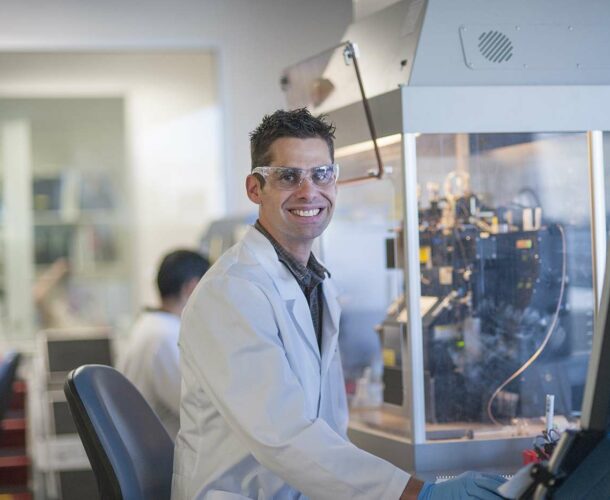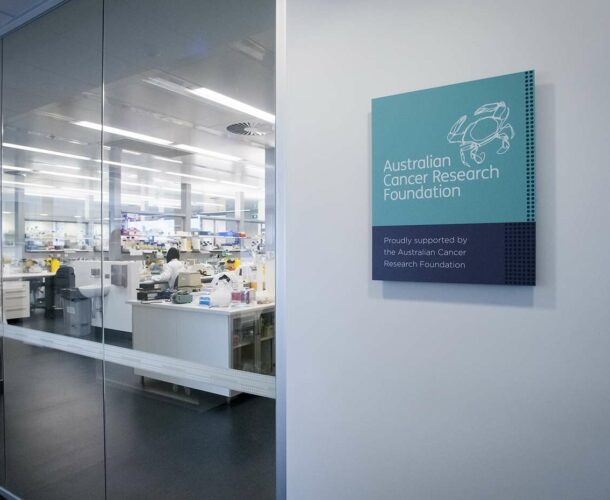Cancer researchers will gain access to first-in-Australia technology with funding from the Australian Cancer Research Foundation (ACRF).
The $2.5 million grant will establish the ACRF Breakthrough Technologies Laboratory, providing new insights into how cancer develops and how it can be more effectively treated.
The ACRF Breakthrough Technologies Laboratory will enhance and accelerate research into many of Australia’s most common and most deadly cancers, including cancers of the blood (leukaemia and lymphoma), breast, ovary, lung and bowel.
Funding world-class research to find cures for cancer
The Australian Cancer Research Foundation (ACRF) is a cancer charity foundation, dedicated to finding the cures for cancer by funding world-class cancer research in Australia.
Institute director Professor Doug Hilton, said the support of the ACRF has been crucial for providing Australian cancer researchers with access to new, state-of-the-art research technology.
“The ACRF has driven many important advances in understanding and treating cancer,” Professor Hilton said. “In the long term, this partnership will result in better outcomes for the 100,000 Australians diagnosed with cancer every year.”
Support enables technology
Institute researcher Dr Daniel Gray said a centrepiece of the ACRF Breakthrough Technologies Laboratory would be an Australian-first system to modify specific genes in cancer cells and in cells undergoing transformation to become cancers.
“The support of ACRF will allow us to investigate how cancers develop, progress and respond to treatments, using a relatively new technology called ‘CRISPR-Cas9’,” he said.
“Cancer occurs when cells develop changes to their genetic material (DNA) that allow the cells to divide uncontrollably and survive beyond their normal lifespan. This new technology will provide researchers with a ‘library’ of molecules that enable us to rapidly and precisely alter a single gene within a cancer cell. This has the potential to provide immense insights into which genes are crucial drivers of cancer development, progression and resistance to anti-cancer treatments,” Dr Gray said.
Located at the Walter and Eliza Hall Institute in Parkville, the ACRF Breakthrough Technologies Laboratory will be available to more than 1000 cancer researchers through the Victorian Comprehensive Cancer Centre (VCCC), a collaborative network of Victorian hospitals and research centres improving the prevention, diagnosis and treatment of cancer. The Walter and Eliza Hall Institute is the research powerhouse of the VCCC.
World leaders in cancer research
Mr Tom Dery, chairman of the ACRF Board, said Australia is at the forefront of cancer research globally. “We’re proud to support the Walter and Eliza Hall Institute in their investigations to better understand cellular errors in cancer,” he said. “This fantastic research team is forging a new path towards solving the problems of cancer.”
Our partnership with the ACRF has gone from strength to strength with funding support for the institute over a number of years for new research facilities (including our ACRF Chemical Biology and ACRF Stems Cells and Cancer divisions) and equipment.






